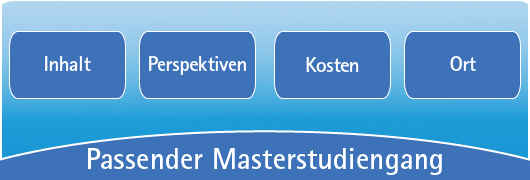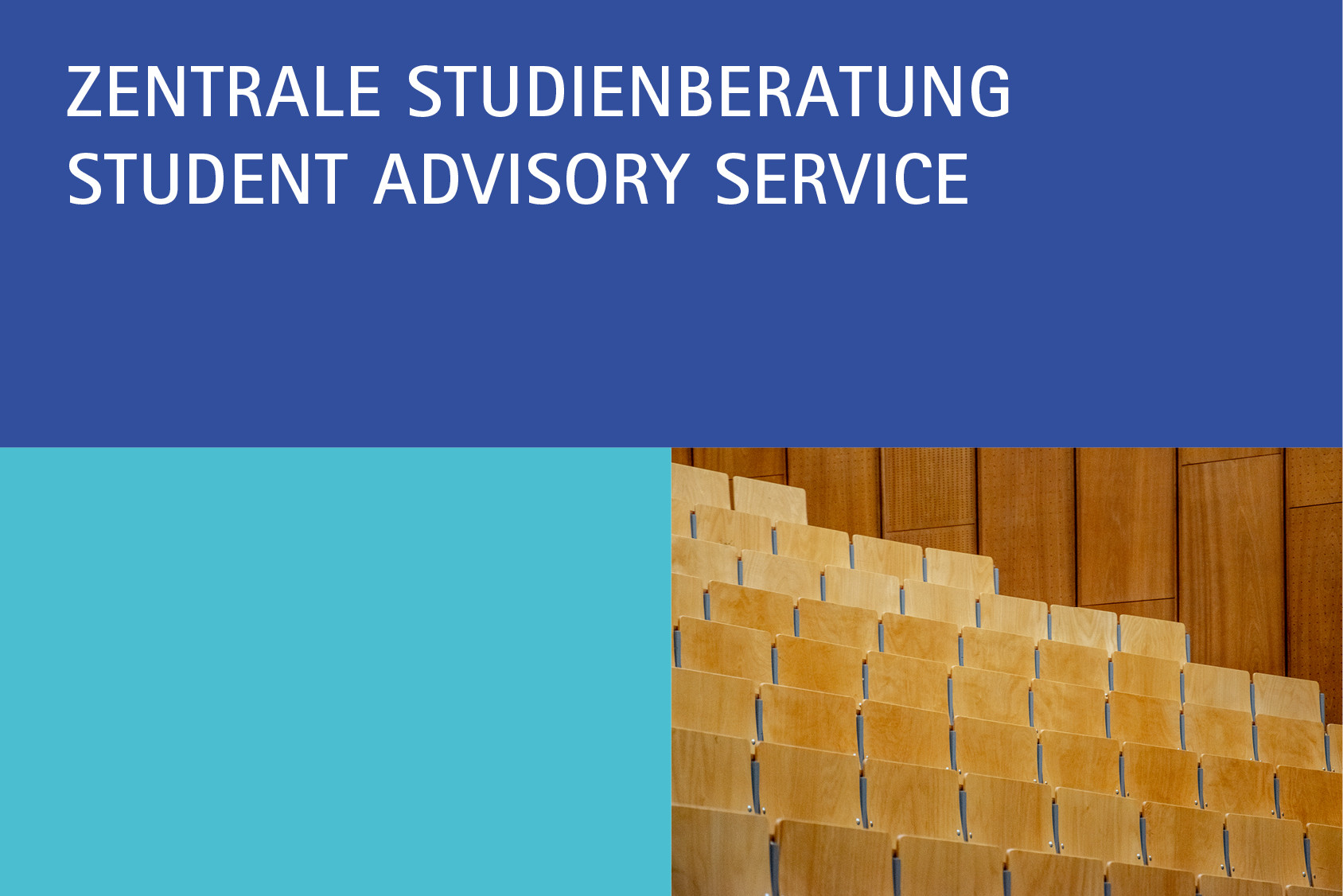REASONS FOR DOING OR NOT DOING A MASTER’S DEGREE
Possible reasons for doing a master’s degree
- Enjoyment of study
- The wish to expand on certain topics
- An interest in the subject
- A master’s is necessary to achieve certain career goals, e.g. teaching
- The wish to progress on to a PhD
- Ambitions for a career in research
- Good grades
- Affordability
- Supposedly better employment prospects with a master’s degree
Possible reasons for not doing a master’s degree
- A lack of interest in the subject
- Little enjoyment of study
- Difficulties at university
- Desire for hands-on experience
- A lack of alternatives
- “Everyone does a master’s.”
FINDING THE RIGHT MASTER’S PROGRAMME – WITH STRATEGY
When choosing which master’s degree to take, it is important to develop criteria that are important to you.
These questions may help you to develop your personal strategy:
- What is important to me?
- What are the key factors for me at university and in my private life?
- What am I keen to change, and what should stay the same?
- Do I want to (continue) specialising through my master’s programme or would I prefer to acquire a wealth of global knowledge as a generalist?
- Do I feel very strongly about certain key areas?
- What role does my place of residence play (for the next two years)?
- Is internationalisation relevant to me?
- Should my master’s degree open up specific career prospects for me?
- Are integrated practical stages at university important to me?
- How much do various master’s programmes cost?
If you want to explore the different options available at master’s level, go to www.hochschulkompass.de, where you can find information about every single master’s programme offered in Germany.


 ©
Zentrale Studienberatung / LUH
©
Zentrale Studienberatung / LUH
QUALITY CRITERIA
Once you know which master’s programme you are looking for, you will probably find a number of higher education institutions (HEI) that offer such a programme, or at least a similar one. When choosing an HEI, you should focus on a number of different quality criteria:
-
Formal criteria: accreditation is important
Accreditation: state-organised quality control of bachelor’s and master’s degree programmes. Various quality standards are examined, such as:
-
- assessment of the development of the degree programme and of the educational objectives
- assessment of the examination system
- assessment of the feasibility of the programme
The Accreditation Council (the Foundation for the Accreditation of Study Programmes in Germany) authorises accreditation agencies (e.g. ACQUIN; ASIIN; FIBAA; ZeVA); for more information, go to www.akkreditierungsrat.de
-
-
Individual quality criteria: What is important to me with regard to my new degree programme?
- Course content and programme structure
- Information and advisory services
- Study abroad options
- Establishment of the master’s programme
- Composition of the teaching staff and student body
- Examination regulations / course regulations
- Course catalogues
- Number of applicants and selection criteria
- Fees
- The university’s (technical) facilities
- Library resources
- Practical stages
- ….
- Go and visit the university!
- Tip: consider several different regions


 ©
Zentrale Studienberatung / LUH
©
Zentrale Studienberatung / LUH
There might not be a perfect master’s programme to suit all your needs. But you may have found a suitable master’s if you can say that you are satisfied with the course content, with your career prospects and with the study location (and any other individual criteria that may be important to you), and that you can finance your degree.
Applications
When it comes to applying, read up about the application process well ahead of time. That way you will have enough time to organise and obtain any documents required without getting stressed. These may include evidence of language skills, a letter of motivation, letters of recommendation, an aptitude test, etc. To find out what exactly your chosen master’s programme requires of its applicants, take a look at the admission regulations for the programme. Information about the procedure for applying for a master’s programme at Leibniz University Hannover is available under Applications.
Questions about a master's programme?
It is best to contact the specialist advisor for your chosen master’s programme directly if you have any technical questions regarding course content. For any other questions concerning the master’s programme, or if you are uncertain about which programme to take, feel free to contact Student Advisory Services.
Learn about studying at Leibniz University Hannover on social media:

 ©
Zentrale Studienberatung / LUH
©
Zentrale Studienberatung / LUH
Welfengarten 1
30167 Hannover

 ©
Zentrale Studienberatung / LUH
©
Zentrale Studienberatung / LUH
Welfengarten 1
30167 Hannover













